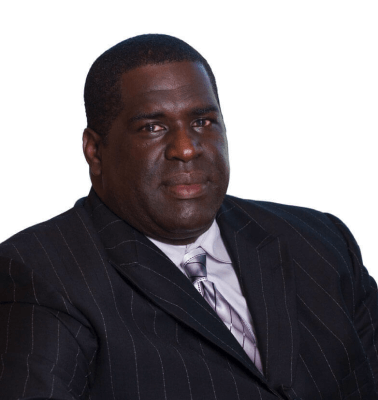Deciding whether you will testify in your DUI trial
The decision of whether you should testify in your DUI trial is a difficult one that involves carefully weighing many factors. Although you cannot be compelled to testify, if you do, the prosecutor will have the right to cross-examine you. For this reason and others, it is not always a good idea for you to testify.On the other hand, the jurors will want to hear from you. The court will instruct the jury on the presumption of innocence. This means the judge will tell the jurors that they may not legally draw any adverse inference from your failure to testify. Despite this instruction, everyone knows the truth: jurors are often unable to follow it.
Why jurors want to hear from you
Jurors want and need some credible explanation from a DUI defendant on a number of topics. Why do police officers claim to have observed symptoms of intoxication? Why does the breathalyzer or blood test result appear to be in excess of the legal limit? At a DUI trial, the defendant is also often the only witness who can testify about all of the events and circumstances that took place before, during, and after the arrest. In many cases, the DUI defendant may be the only available witness for the defense.
Some possible legal ramifications of your decision to testify at your DUI trial
There are other important ramifications to a DUI defendant’s testimony. In some jurisdictions, the defense counsel cannot make an opening statement if he or she does not intend to present any evidence. Many times the only evidence with be the defendant’s testimony. The case will come down to the defendant’s word against that of the police officer, or alternatively, the defendant’s word against the breathalyzer machine. What does the number mean?
Bear in mind that if you testify about your alcohol consumption, expert testimony may be needed to give meaning to this testimony. For example, if you testify that you consumed four beers over three hours and the test result says .15, does the jury know that there is a conflict in the evidence? Only an expert can testify that this consumption pattern would result in a test result below the legal limit. Otherwise, the uninformed jury may believe that four beers over three hours can produce a .15 breath alcohol concentration (BrAC).
Factors to weigh in making the decision to testify
This boils down to something quite simple, but difficult to implement. Your DUI defense attorney must help you make an extremely important decision: Should you testify? You have a constitutional right to testify and it is your decision, not your attorney’s, whether you will take the stand. Your DUI lawyer has the obligation, however, to advise you on whether you should testify. The decision whether you should testify requires a thorough analysis of the facts of the case, and specifically an evaluation of your strengths and weaknesses.
The jurors will expect and want you to testify that you were not under the influence of alcohol. Only if you can do so credibly and effectively will you be able to supply the reasonable doubt necessary to support a not guilty verdict. In certain jurisdictions, the jurors may even be instructed that if they find the defendant’s testimony to be credible, that credibility itself can amount to reasonable doubt. On the other hand, no other witness can more thoroughly damage a case, and if you are not believed, or are not sympathetic, then no matter how well prepared and well executed, your case will be lost.
Your DUI trial is like a sporting event where the team who scores the most points wins. Using this analogy, the first question is this: Knowing everything about the case, can the case be won without your testimony? In other words, can your DUI attorney score enough points to win the trial based only on cross-examination of the state’s witnesses and the testimony of any other witnesses? If the answer is “no,” meaning you need additional points to win the trial, then and only then should the next question be asked: Will you attorney score more “points” for your side with your testimony than the prosecutor will score for the state’s side by cross-examining you? Notice that this question presumes that the prosecutor will score points from your testimony. If the answer to this question is “no,” then you should not take the stand. There is no doubt that even a moderately skilled prosecutor will score some points when you take the stand.
Dealing with your decision to testify or not during jury selection
If your DUI lawyer anticipates at the outset of your trial that you will not testify, your lawyer must deal with this issue while picking the jury. Your attorney’s goal must be to encourage the jurors to discuss this issue openly, and this requires open-ended questions, such as: “Some people think that a person who is wrongfully accused will want to take the stand to tell the truth of what happened, while other people think that such a person will not be believed because he or she is just trying to get off. Mr. Jones (juror in seat one), what is your opinion on the matter?” Your lawyer will then ask other jurors if they agree or disagree with Mr. Jones, or if they have other thoughts on the matter.
Another good question for potential jurors is: “What reasons can you think of why someone who is innocent might choose not to testify in a criminal trial?” If a reason or reasons are given by one juror, your DUI lawyer should ask the others to comment, or expand on those reasons. By getting the jurors to talk about reasons why an innocent person might choose not to testify in a criminal case, your lawyer will begin to get jurors to examine their philosophical beliefs about whether the innocent may choose not to testify. Your attorney should listen carefully to the reasons the jurors advance and ask them to comment and discuss openly their feelings on this topic. Your DUI attorney will obtain valuable information about the jurors and whether to attempt to remove any of them from the panel with a peremptory challenge or challenge for cause.
These questions and the jurors’ responses can also give your DUI attorney direction on what arguments to advance later in trial about the presumption of innocence and reasonable doubt.
Even if you and your attorney intend for you to testify, your attorney may still want to ask these questions, but then follow up with another one: “Now, suppose that someone who is innocent chooses to testify even though he is not required by the Constitution to do so. What reasons can you think of why someone would choose to testify in such a circumstance? What would that person’s decision to testify mean to you?”
Jurors’ answers to these questions will tell you and your DUI attorney a great deal about the prospective jurors and will assist your attorney in attempting to remove biased jurors. The answers will also help your DUI lawyer plan his or her strategy on how to present you when you testify.













